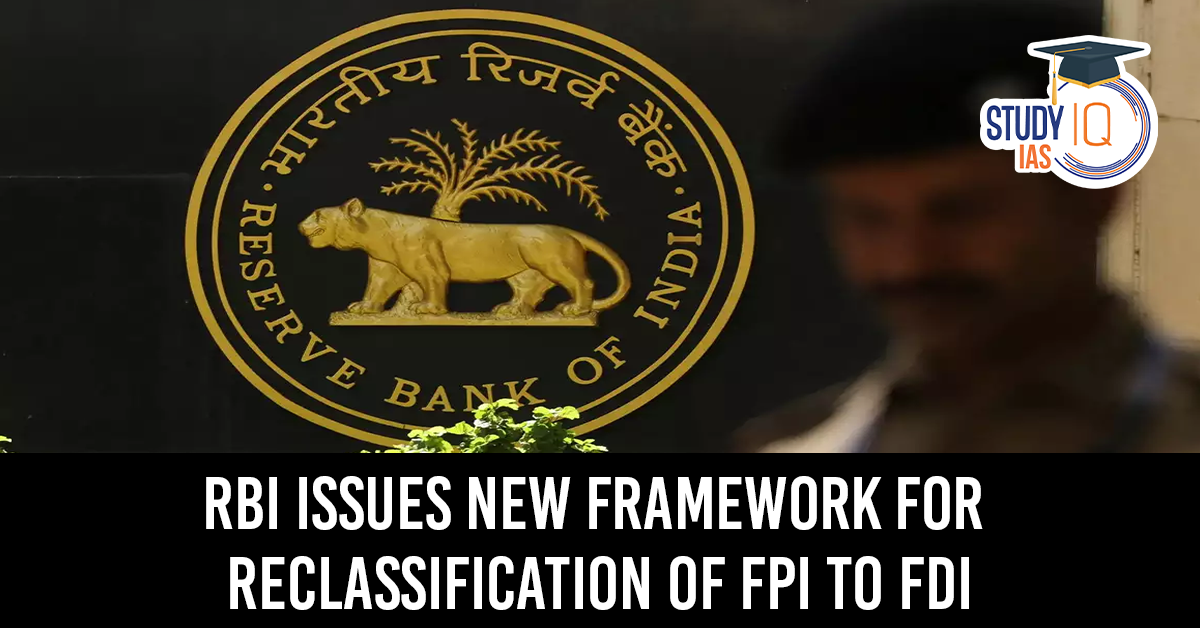Table of Contents
Context
The RBI has directed FPIs to obtain necessary approvals from the government and concurrence from the investee companies when their equity holdings go beyond the prescribed limits
About FDI and FPI |
|
● Foreign Portfolio Investor (FPI): FPIs are investors who hold a stake in a country’s financial assets, such as stocks and bonds, without gaining significant control over the companies they invest in. The current cap for FPIs is below 10% ownership in a listed firm. ● Foreign Direct Investment (FDI): FDI involves investing directly in the production or business in a country by a foreign entity, by acquiring a significant ownership stake (more than 10%) in a company. FDI is a more stable form of investment compared to FPI, as it involves a long-term interest in the economy. |
About RBI’s Directive
- FPI Investment Limit: According to theForeign Exchange Management (Non-debt Instruments) Rules, 2019, an FPI’s investment in any company must not exceed 10% of the total paid-up equity capital on a fully diluted basis.
- If an FPI’s investment surpasses this limit, it must either divest the excess holdings or reclassify them as FDI within five trading days from the settlement date of the trade causing the breach.
- Reclassification Process: FPIs wishing to reclassify their holdings as FDI must:
- Obtain necessary government approvals.
- Ensure the acquisition beyond the prescribed limit complies with FDI regulations such as entry routes, sectoral caps, investment limits and pricing guidelines.
- The Indian investee company must also consent to the reclassification to ensure compliance with FDI sector-specific conditions, including sectoral caps, restrictions on certain sectors and government approvals.
UPSC PYQ |
| Q. With reference to Foreign Direct Investment in India, which one of the following is considered its major characteristic? (2020)
(a) It is the investment through capital instruments essentially in a listed company. (b) It is a largely non-debt creating capital flow. (c) It is an investment which involves debt-servicing. (d) It is the investment made by foreign institutional investors in the Government securities.
Answer: B |


 New Window of Opportunity for India amid...
New Window of Opportunity for India amid...
 Cetacean Morbillivirus: Meaning, Feature...
Cetacean Morbillivirus: Meaning, Feature...
 Transforming a Waste-Ridden Urban India:...
Transforming a Waste-Ridden Urban India:...

























